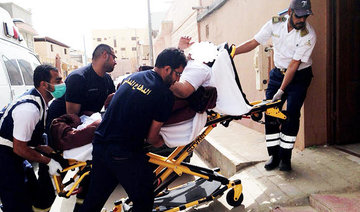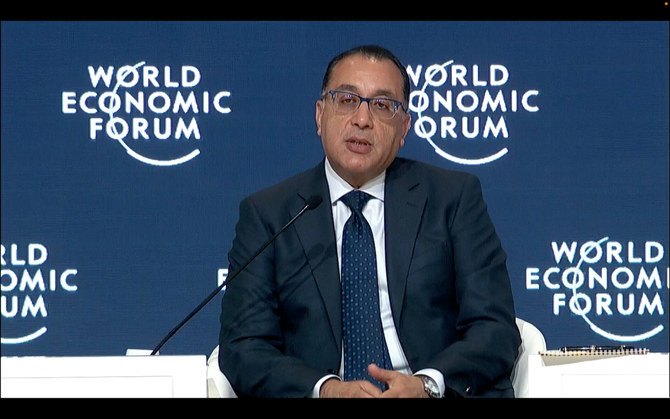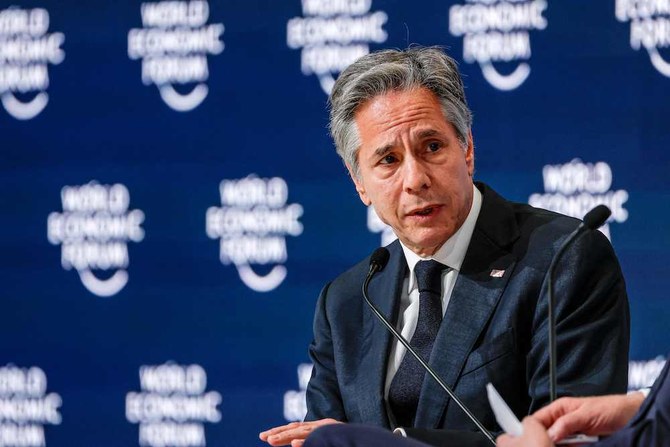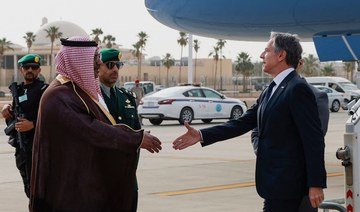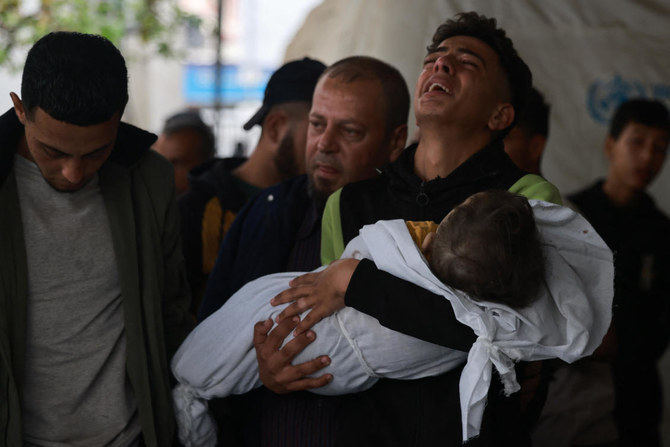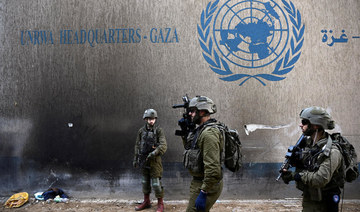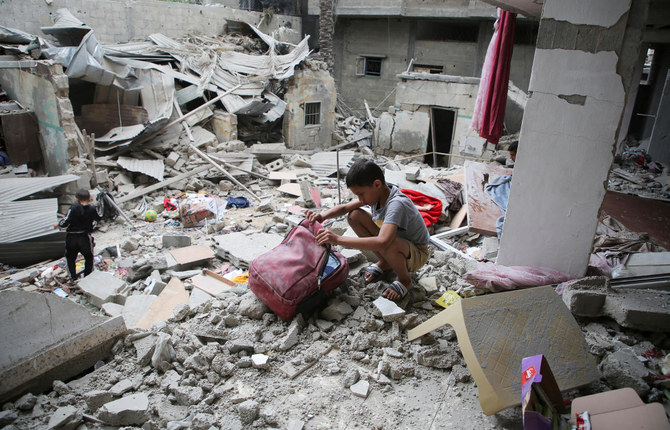DUBAI: Whether it is rewarding dieters with gold, offering lucrative cash prizes to fitness enthusiasts or introducing “biggest-loser” competitions for slimmers, the UAE has led the way in encouraging people to shed excess weight in unexpected ways. But this year a simpler approach has been adopted. The nation is currently halfway through its second annual Dubai Fitness Challenge — an initiative by the emirate’s crown prince that urges residents to include 30 minutes of non-stop exercise in their daily routines each day for a month.
Health experts are urging other Gulf Cooperation Council (GCC) countries to come up with rewards for healthy living as concern mounts over rising rates of obesity caused by fast-food diets, lack of exercise and sedentary lifestyles. The month-long calendar of fitness challenge events aims to inspire people across the emirate by demonstrating that healthy choices make for happier lives. The challenge’s ultimate aim is to transform Dubai into the most active city in the world.
The challenge began last year as a city-wide initiative of Sheikh Hamdan bin Mohammed Al-Maktoum, crown prince of Dubai and chairman of the Executive Council for Dubai Government. “My vision was to create a truly inclusive movement across our city and the wider UAE, to sustainably enhance the health and long-term well-being of people of all ages, abilities and levels of fitness,” he said.
So far, almost a million people — from government entities, corporate businesses, schools and universities — have committed themselves to 30 minutes’ exercise each day. They post updates on their progress on social media under the hashtag #Dubai30x30. 
This year, the challenge includes weekend carnivals, five dedicated Fitness Villages spread across the city and thousands of free classes, events and community-led activities that organizers hope will achieve an ambitious target.
“This year, we have a target of one million participants and I urge you all — residents and visitors —to invest in yourselves and your happiness — so you can better contribute to the welfare of your families, your communities and the global society,” said the crown prince, at the beginning of the challenge.
“Last year was a tremendous start for the festival — but we aren’t satisfied with our successes. This year, the event will offer more ease and convenience of access to all communities so that everyone — regardless of age, ability and fitness capacity — can participate daily.”
The challenge is one of a host of innovative fitness initiatives launched to get the country’s residents active and healthy amid rising concerns in the region about the prevalence of non-communicable diseases, such as cardiovascular and lung diseases, some cancers and type 2 diabetes.
It follows a string of innovative fitness initiatives. In 2013, Dubai Municipality introduced its “Your Weight In Gold” campaign, which encouraged participants to lose weight by offering at least a gram of gold for every kilogram lost. Although the campaign was scrapped in 2015, it was the emirate’s biggest — and most expensive — public health campaign, giving out 9 million dirhams (SR9.2 million) worth of gold. Over the course of two summers 56 kilos of gold bullions was given to 10,000-plus slimmers who had lost 54 tons of weight. Earlier this year, the RAK Biggest Weight Loser Challenge set residents in UAE’s Ras Al Khaimah emirate a challenge that offered up to 500 dirhams for every kilogram lost.
In 2016, Saudi Arabia announced a nationwide competition designed to address the Kingdom’s standing as one of the world’s most overweight nations by offering prizes to dieters in a “biggest-loser” contest open to both Saudi citizens and expats. It was part of a national program called “Obesity: The Silent Ghost,” in which overweight and obese residents were encouraged to lose weight through direct support, reward-based incentives and free medication.
Dr. Nahed Monsef, director of strategy and governance at the Dubai Health Authority (DHA), said that weight loss schemes have spurred a country-wide movement to get fitter and healthier — and other countries across the GCC could benefit.
“Changing people’s behavior is hard,” she said. “It is one of the hardest things to empower people to modifying behavior to lifestyle, exercise and diet. People often need a push — and this is what these initiatives do — reward good behavior and motivate people. People know if they lose weight they will get healthier, but by offering people a tangible incentive, it gets people to change their habits and behavior.
“All initiatives across Dubai and the UAE are a result of the burden of obesity and a sedentary lifestyle and the problems they cause, such as hypertension and heart disease. Cardiovascular disease is the number one (cause of) death here, and we have to learn from others — and others need to learn from us — and we have to work together to change people’s habits and raise awareness.”
Jonny Young, the founder of FitnessInDXB, the region’s first and largest community fitness group, believes the wider Arab region can benefit from the UAE’s innovative initiatives. “As a population, we need to eat better-quality food, which is healthy and good for us, and move more,” he said.
“We are starting this journey by focusing on Dubai, but have plans to emulate our success in 2019 in other emirates and countries such as Fujairah, Abu Dhabi and Saudi Arabia,” he said.
“People are waking up to the fact that, as a population, we are getting fatter and sicker. We aim to provide a strong support network within communities to increase awareness of how to combat this problem.”
Art Cozad, CEO of Cigna Insurance Middle East, added: “Heart disease is Dubai’s biggest killer, responsible for 30 percent of deaths. People in the UAE suffer from heart attacks 20 years earlier than the global average. More than 30 percent of adults in the UAE battle with high blood pressure, with the numbers rising rapidly.
“Sporting initiatives such as the Dubai Fitness Challenge provide an outlet for residents to take part in some form of physical activity and educate themselves on the importance of leading a healthy lifestyle. In doing so, they can begin to prevent future issues by improving their heart health and reducing obesity.”
According to the World Health Organization, non-communicable diseases (NCDs) account for 76 percent of all deaths in the UAE — 11,600 every year. There is an almost one in five chance of dying prematurely — between the age of 30 and 70 — from one of these largely avoidable conditions.
“We are witnessing an increasing number of NCDs, especially diabetes, including young people with the disease, something we never saw before,” said Dr. Buthaina Bin Belaila, director for the UAE’s Ministry of Health and Prevention’s NCDs unit. “The risk factors that cause NCDs, such as having a poor
diet, consuming sugary drinks and smoking tobacco, are increasing.”
The WHO praised the UAE government for raising taxes on energy drinks by 100 percent and sugar-sweetened beverages by 50 percent in 2017. It is working on regulations to control the marketing of fast foods, introduce healthy canteens and increase physical activity in schools.
Dr. Asmus Hammerich, director of NCDs for the WHO’s Eastern Mediterranean regional office, said the UAE is an example of a country prioritizing action against chronic conditions in light of the health and economic burdens of NCDs.
A national agenda has been set with 10 goals to be hit by 2021, five relate to NCDs: Tackling cardiovascular disease, diabetes, cancer, obesity and smoking.
“We are very encouraged by the recent legislative action for health in the UAE and some neighboring countries,” said Dr. Hammerich. “As the rise of NCDs has been acutely felt in the Gulf region, WHO is working closely with countries there to strengthen their systems and services to prevent and control these conditions.”








